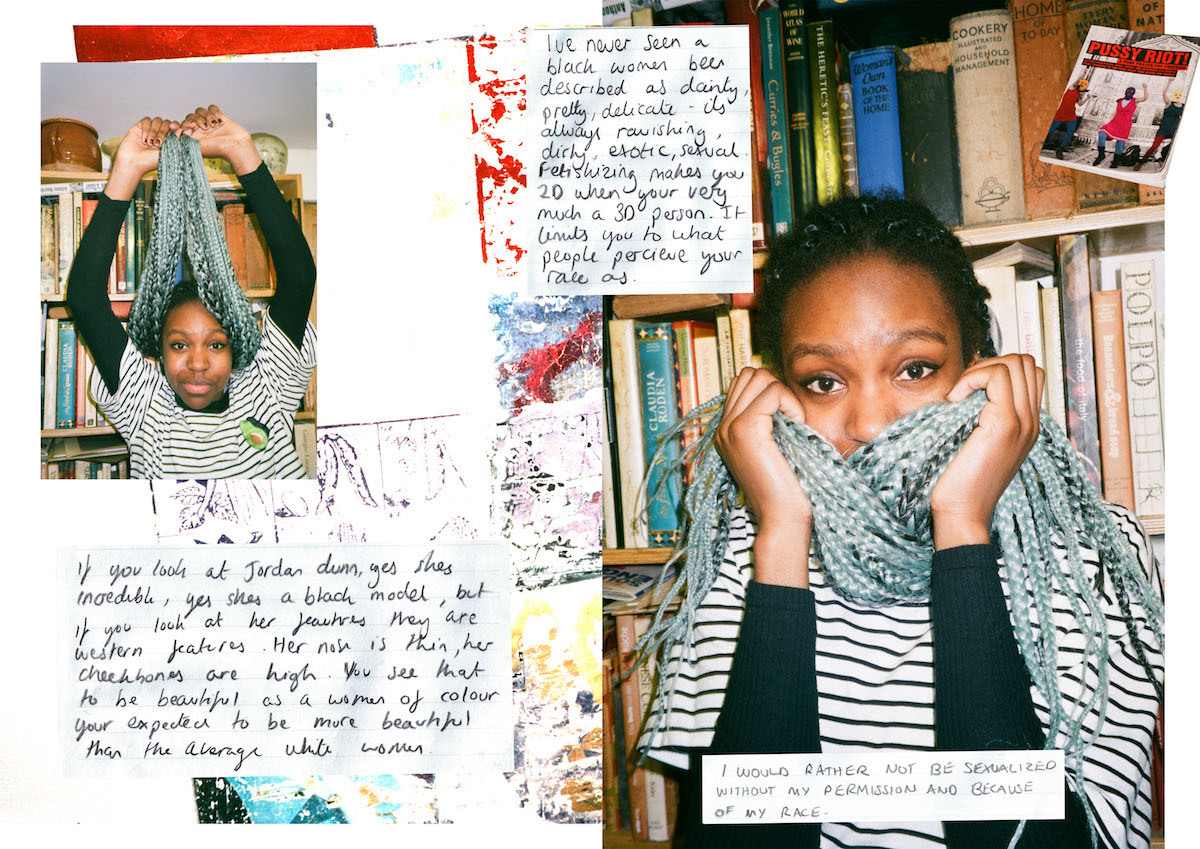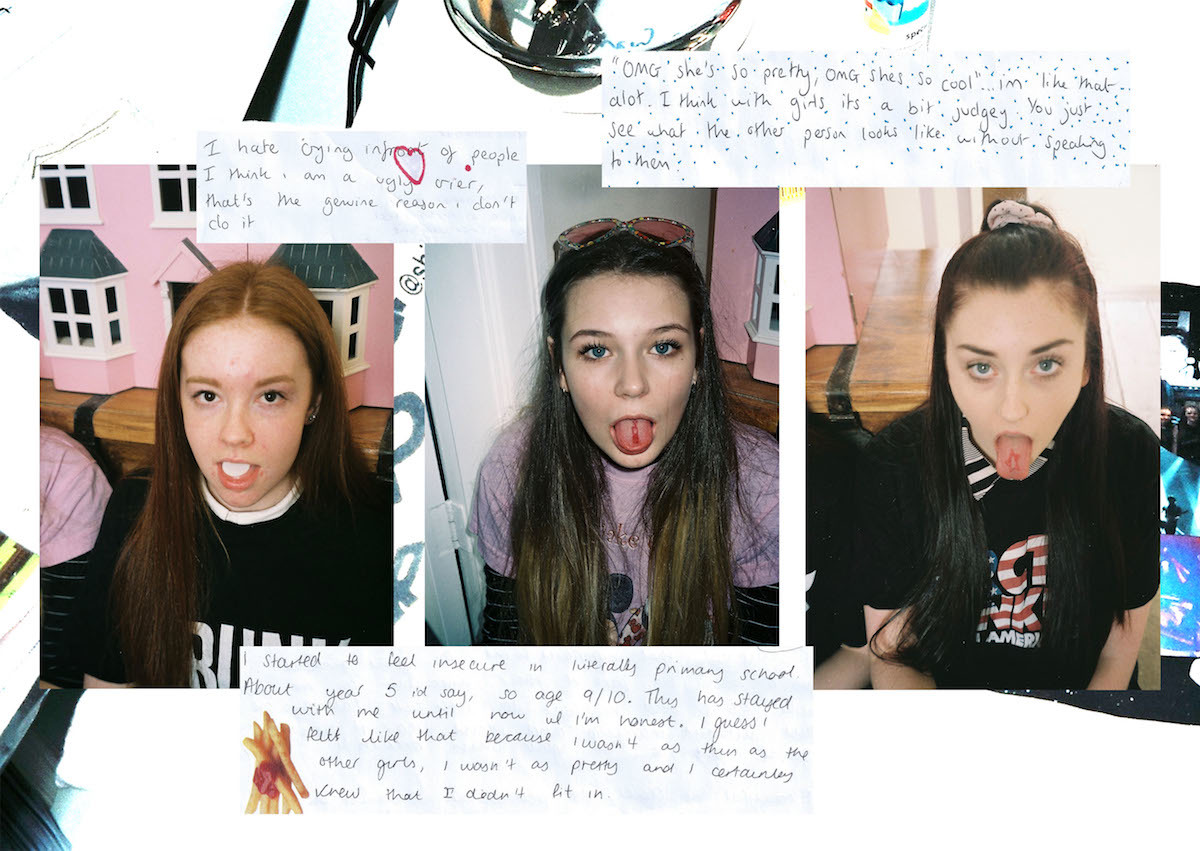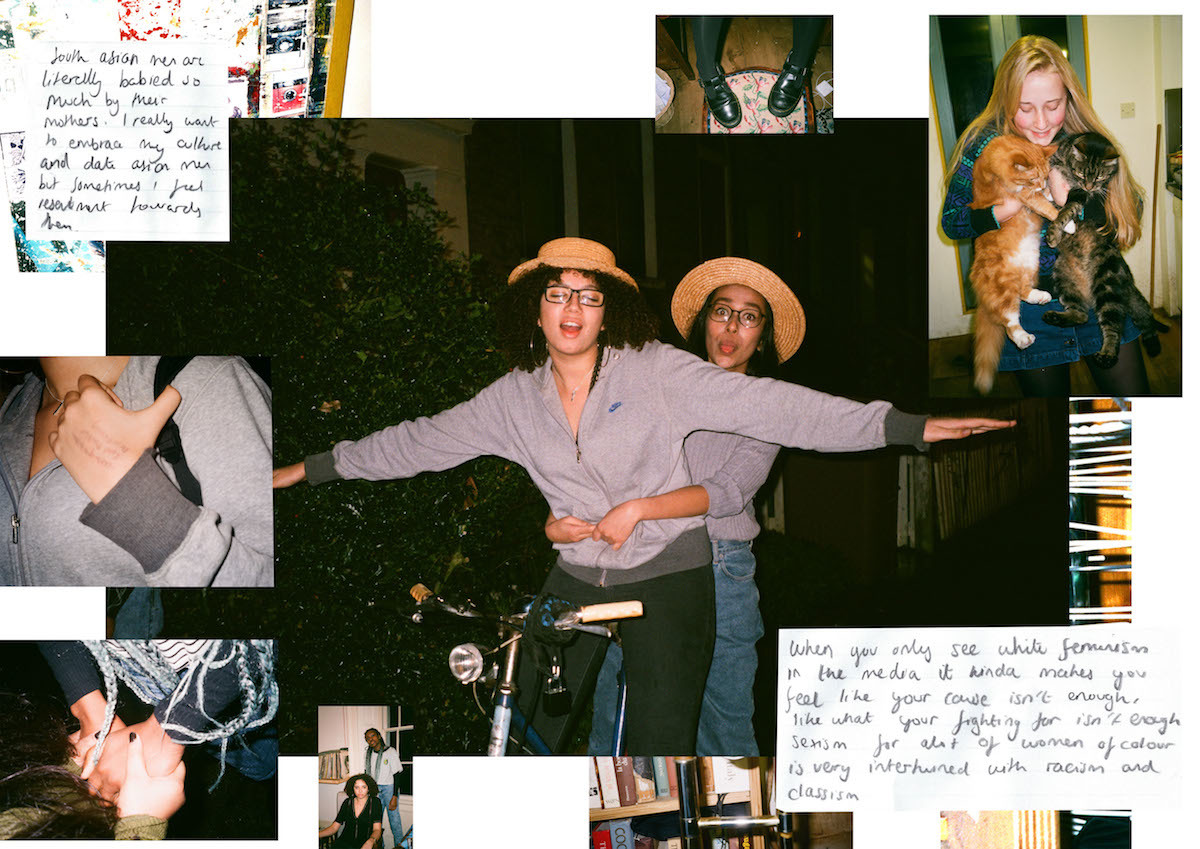Growing up in a small village near Chester, 22-year-old Isabelle Whiteley never truly felt like she fit in. In other words, she felt like every other teenage girl; lost, anxious, and desperately inadequate. She was 12 years old when she first went to boarding school, upon which her world began to crumble, as she buckled under the many pressures – real and imagined – of simply being a girl. It wasn’t until she went to university, however, when she began research the politics of female empowerment, that the thin veil of sexist ideology, upon which society thrives, was finally pulled back, and Izzy begun to realise the importance of challenging the status quo. It was this realisation that was the impetus behind setting up That’s What She Said, an interactive online and IRL platform dedicated to empowering women worldwide and redefining what it means to be a girl. Addressing topics from body image to mental health and the media’s unrealistic representation of women, That’s What She Said invites girls all around to share their experiences with likeminded people, and learn form the testimonials of others. Here we catch up with the brilliant Izzy Whiteley to talk all things girl.

What’s the story behind That’s What She Said?
My teenage years were really shit, like many kids, they are probably the hardest that I’ll ever have to go through. I struggled with every cliché teenage girl problem but tenfold. There are so many things we tend to accept and not question in society, because we are told that this is just how life is, but you should never accept something that is broken. While I was at uni, I started to read up a lot about feminism, and certain philosophies that questioned our capitalist society. The feelings of inadequacy I felt as a teenager began to make sense and I started to realise that society can condition girls to blame themselves for the way they feel, almost like it is our fault we feel so inadequate. That’s why I started That’s What She Said; once I allowed myself to question my surroundings, it changed my life and I want to give other young girls the opportunity to do the same. I feel they have a lot to say and that they are not being heard in the way they should be.
How has growing up in the digital age affected young girls?
A big thing many of the girls talk about is the competition for validation on social media. It’s just another thing that attacks your self worth. Social media can be incredible in so many ways but this way of using it is taking us further and further from believing that we are really ok just the way we are. Cyber bulling and sexism are also rife on social media and young girls suffer from that much more.
Why do you think this is a specifically female problem?
This is all a very appearance-related, insecurity-based problem and girls have been informed from a very young age that their appearance matters more than boys. Gender stereotyping, the media, sexism etc. exacerbate this further. All the pressures I have talked about are on boys too and the pressure on them is only getting worse but like most problems in feminism, it is intensified for girls.

Throughout history artists have been representing themselves and others in terms of ideals, so why are we so surprised to find the same thing happening on Instagram?
It is totally natural for people to want to show themselves in the best light; self-promotion is part of human nature. The difference between ideals in history and now is that because of the extent of imagery available to us through social media, the impact of these ideals is much greater. There is no break from it. We are trying to rebalance this so that there is a clear view of reality as well as the ‘ideal’.
Feminism has become part of the cultural conversation in a way that it’s never been before, it’s become ‘cool’, but what is this new wave of feminism actually doing for young girls?
I think it is very important for feminism to be cool to young girls, so even if when they jump on board it may not be for the right reasons, they are still part of it and learning. I think many girls now actually think feminism is uncool and that being a feminist makes them unattractive or ‘man hating’, which is a very dangerous light to have it in. Girls’ access to feminism and like-minded people has never been so easy and this is really amazing for them. To be able to go on Instagram and feel less alone is definitely liberating for these girls. A south Asian girl I talked to recently in a group of girls of colour said that she felt very alone in her views on white feminism until she went on Instagram and felt a support system. This new wave of feminism is making it much easier for girls to talk about becoming activists without having to be overexposed. It is about bringing up a new generation of girls who are encouraged to fight oppression and more importantly have the ability to question conditioning. The project provides a platform for young girls to have their views heard and will hopefully help them to explore those views and develop the confidence and strength to take control of their own futures.
What does being a girl mean in 2016?
An incredible girl from Brixton called Vida gave a great answer: “To be sexy but not sexual. To be happy, even when you aren’t. To be strong without being tough. To be empowered without the power. To be feminist without being… um…. an activist (go figure). To be loud and charismatic without every saying anything. To be clever without using it. To be feminine without “crying like a girl”, “running like a girl”, “throwing like a girl”. To navigate a world of double standards where you are damned if you do and damned if you don’t. SO MOSTLY IT MEANS THE PRESSURE TO CONSTANTLY NEED TO BE PERFECT IN EVERYTHING BUT TO BE SO PASSIVELY. YOU CAN’T TRY, YOU JUST HAVE TO BE BUT BEING ISN’T GOOD ENOUGH.”

thatswhatss.com / justgiving.com/thatswhatss
Credits
Text Tish Weinstock
